You’re A Funny Ass Mofo!
Robin H. Harris (1953-1990)
He was born in Chicago, Illinois. His father, Earl, was a welder and his mother, Mattie, was a factory seamstress. In 1961, the family moved to LA, where he attended Manual Arts High School. A track star, Harris received a scholarship and attended Ottawa University in Kansas. During this time, he began to hone his craft of comedy. He worked for Hughes Aircraft, a rental car company, and Security Pacific Bank to pay his bills. In 1980, he debuted at Los Angeles’ Comedy Store with little response.
During the mid 80’s Robin worked as the master of ceremonies at the Comedy Act Theater in Los Angeles. His “old school” brand of humor began to gain him a mainstream following. A large-eyed stand-up churlish brand of humor and quick put-downs were his trademark.
Harris made a promising feature debut playing a no-nonsense bartender in the feature film I’m Gonna Git You Sucker (1988). Harris performed in director Spike Lee’s Do The Right Thing (1989). As “Sweet Dick Willie,” Harris served as part of the neighborhood “Greek Chorus” that commented on the events of an increasingly tense day. Harris was Pop, the no-nonsense, quick-witted father of Kid in House Party (1990). He followed up later that year with a small turn as a jazz club MC in Mo’ Better Blues. He also had a role in Eddie Murphy’s Harlem Nights (1989).
In Harris’ “Bébé’s Kids” routines, Harris’ girlfriend Jamika would insist that he take her friend Bébé’s three ill-behaved children with them on a date, as she continually agreed to babysit them. The children would regularly make a fool out of and/or annoy Harris. “We Bébé’s kids,” they would proclaim, “we don’t die…we multiply.”
The Hudlin Brothers had intended to make a feature film based upon the “Bébé’s Kids” sketches, but Harris died while the film was in pre-production. Bebe’s Kids instead became an animated feature—the first ever to feature an all-Black main cast.
Bebe’s Kids animated publicity cel is part of The Museum Of UnCut Funk Black Animation Collection.
Robin Harris Quotes:
"Gotta Go...Gotta Go"
"Test tube baby!"
"I am pissed off to the highest level of pisstivity."
The late Robin Harris really put the Comedy Act Theater on the map, and as his star was rising meteorically, something just came and took his breath away. I was working at KACE FM at the time and Robin used to come in and cut commercials for his shows and things. He always had a group of comedians around him and, as he did in his nightclub act, he cracked on every one in sight. The first show I ever broadcast with him, he told Mark Whitlock, who once sported a bit of a Jheri Curl, that his hair looked like a thousand ink pen springs. I was rolling. Then he turned those bubble eyes on me and told me my braids were so tight it looked like I slept with my eyes open. Ouch! (We were on air.) I did not know then that joke was a staple of his shtick."
Filmography
- I’m Gonna Git You Sucka (1988)
- Do The Right Thing (1989)
- Harlem Nights (1989)
- House Party (1990)
- Mo’ Better Blues (1990)
Notorious for his frank, tell-it-like-it-is style, Redd Foxx broke new ground for minorities and comedians alike. By joking about everything from sex to color barriers, he brought simmering and taboo issues into the open. His candor onstage not only jump-started what is now considered a war with censors, but also inspired and enabled other comedians to achieve more than had ever been possible. Foxx was not only “The King of Comedy,” but also a talented artist. He took a sketch book with him whenever possible, and enjoyed creating his own fantastic images or capturing the essense of those whom he loved or admired.
John Elroy Sanford was born into poverty in St. Louis on December 9, 1922. With a ruddy complexion, Redd became a fast nickname. He derived Foxx from admirable Major League Baseball player, Jimmie Foxx. He left St. Louis for Chicago when he was 13, and supported himself by playing the washboard in a band. When the band broke up three years later, he hopped a train to New York City. It was there that he met Malcolm Little, a man who would later be known as Malcolm X. In “The Autobiography of Malcolm X,” he is referred to as “Chicago Red, the funniest dishwasher on this earth.”
Foxx began performing as a comedian/actor in black theaters and nightclubs, often referred to as the “Chitlin Circuit.” From 1951-1955 he teamed with comic Slappy White, a lifelong friend who would also act alongside him on “Sanford and Son” and “The Redd Foxx Comedy Hour.” While he was performing in Los Angeles, he was offered a deal with the Dooto record label. Foxx received $25 for his first recording. In the years to follow he would produce over 50 comedic albums. During the 1960s, as cultural barriers began to wear down, Foxx’s audience grew steadily. In 1972, after his film debut in Ossie Davis’ Cotton Comes to Harlem, Norman Lear signed Foxx as junk dealer Fred Sanford in a new NBC sitcom.
“Sanford and Son,” which co-starred Demond Wilson and La Wanda Page, was a big hit. So big, in fact, that it ranked in the top ten virtually every week it aired. At one point NBC even ran the show twice a week. When Foxx left in 1977, it was reportedly because NBC wouldn’t give him a dressing room with a window. Closer to the truth, however, might have been the generous salary offered to him by ABC. In an effort to weaken NBC’s powerhouse Friday line-up, ABC was determined to lure away the “Sanford and Son” star. It worked.
NBC’s ratings dropped continuously. Meanwhile, Foxx launched his own show, “The Redd Foxx Comedy Hour.” He was executive producer of the program, which first aired on September 15, 1977, and cast him alongside Sarah Hardy, Slappy White, “Iron Jaw” Wilson, Billy Barty, Hal Smith, Bill Saluga and The Gerald Wilson Orchestra. Foxx was excited about the variety show’s open forum, and planned to take full advantage of the opportunity. “I’ll be doing anything that can possibly be different from what’s been done before.” He said. “I’ll be doing skits, bits, obnoxious things.. I might do Romeo and Juliet with a gorilla.” In keeping with the show’s tone, during the introduction a list of guest stars that would not appear on the program was read. Real guest stars included comedian Andy Kaufman and Bob Einstein’s “Super Dave Osborne” character.
During the first episode, well aware that he was infamous for a special brand of comedic routines, he joked, “The only thing I can do from my nightclub act is smoke.” Foxx took live questions from the audience during his monologue, demonstrating his clever and on-the-ball wit. The program’s undisciplined nature made it extremely adventurous for the 1970s, and challenged both the audience and the censors to speculate what would transpire next. Nevertheless, having only been interested in hindering NBC’s progress, ABC wasn’t concerned with how Foxx faired at their network. The show was cancelled on January 26, 1978.
Foxx then took to Las Vegas, where he instantly became a headliner. He enjoyed performing there, and continued even while he launched another sitcom for ABC. On “The Redd Foxx Show,” he played Al Hughes, a likeable, friendly newsstand owner. The cast was a mix of former co-stars, including “Iron Jaw” Wilson, and new faces, such as Nathaniel “Rollo” Taylor, Barry Van Dyke and Beverly Todd. The show did not fair well with audiences, however, and when production was terminated, Foxx left ABC for good.
In 1989, he and long-time friend Della Reese co-starred in Eddie Murphy’s “Harlem Nights.” Though the movie itself received little attention, critics took notice of the pair’s performance. CBS jumped and signed the two for a new sitcom, “The Royal Family.”
Sadly, while on the set of “The Royal Family,” Foxx suffered a massive heart attack. Reese bent over him and prayed, “Don’t die Redd, don’t die,” but it was too late. The world lost comedic genius Redd Foxx on October 11, 1991. Foxx’s albums stand as proof of his legacy as they continue to sell, topping out at over 15 million copies sold.
Redd Foxx Quotes:
“Beauty may be skin deep, but ugly goes clear to the bone.”
“A girl's legs are her best friends, but the best of friends must part.”
Filmography
- All the Fine Young Cannibals (1960)
- Cotton Comes to Harlem (1970)
- Norman…Is That You? (1976)
- Harlem Nights (1989)
TV Appearances
- Sanford and Son (1972–1977)
- The Redd Foxx Comedy Hour (1977–1978)
- HBO On Location with Redd Foxx (1978)
- Sanford (1980–1981)
- Viva Shaf Vegas (1986)
- The Redd Foxx Show (1986)
- Ghost of a Chance (1987)
- The Royal Family (1991)
Discography
- The Best Laff
- Laff Of The Party Vol. 1
- Laff Of The Party Vol. 2
- Laff Of The Party Vol.3
- Laff Of The Party Vol.4
- Best Of Foxx Vol. 1
- Laff Of The Party Vol.7
- Burlesque Humor
- The Side Splitter Vol.1
- The Laff of the Party Vol. 8
- The Side Splitter Vol. 2
- Best of Fun (Red Foxx and Others)
- Racy Tales
- Redd Foxx Funn
- Sly Sex
- Have One On Me
- The New Soap/Song Plugging
- The Jackasses/The Race Track
- The Honeymooners/The Sneezes
- The Two Oars/The Preacher’s Bicycle
- The Dead Jackass/Women Over Forty
- Real Pretty Baby/It’s Fun To Be Living In The Crazy House
- Best Of Redd Foxx Parts 1&2
- The House/Sex And Orange Juice
- Hollywood Playboy/The Dogs Meeting
- South Of The Border/The Plastic Surgeon
- The Dear John Letter/Honesty Is The Best Policy
- The Shoe Shine Boy/The Royal Thighs And Others
- 118 Ways To Make Love/Pregnancy Co-Operation
- No Teeth/With My Teeth/The Best Years/Deep Sea Diver
- Christmas Hard Ties/Jaw Resting
- Laffarama
- Wild Party
- This is Foxx
- He’s Funny That Way
- Red Foxx At Jazzville U.S.A.
- You Gotta Wash Your Ass
- Laff Your Head off
- Laff Your Ass Off
- Redd Foxx At Home
- A Whole Lot of Soul
- At His Best
- Doin’ His Own Thing
- Say It Like It Is
- Is Sex Here To Stay
- Where It’s At
- Huffin’ And A Puffin’
- I Am Curious, Black
- Three Or Four Times A Day
- Mr. Hot Pants
- Hot Flashes
- Restricted
- Superstar
- Spice Can Be Nice!
- Strictly For Adults
Clerow Wilson Jr. aka Flip Wilson (1933-1998)
Clerow Wilson, Jr. was born into poverty, one of 18 children. In and out of foster homes and reform schools, at 16 he lied about his age and joined the Air Force. In the service, he informally entertained his buddies with hilarious stories and characters. He always described himself as “flipped out,” so his barrack mates gave him the nickname “Flip.”
Flip Wilson was among a group of rising Black comics of the early 1970’s, of such notoriety as Bill Cosby, Nipsey Russell and Dick Gregory. Wilson had been working small venues for over a decade when Redd Foxx observed his act in 1965 and raved about him to Johnny Carson. As a result, Flip made over 25 appearances on the Tonight Show, and in 1968, NBC signed him to a five-year development deal.
After making television guest appearances on such shows as Love, American Style and That’s Life, and starring in his own 1969 NBC special which served as a pilot for the series to come, Wilson was offered an hour-long prime-time NBC show. The Flip Wilson Show saw a remarkable four-year run. Only Sammy Davis Jr. had enjoyed similar success with his song and dance variety show; comparatively, shows hosted by Nat “King” Cole and Bill Cosby were quickly canceled, due to lack of sponsorship and narrow appeal. At the show’s high point, advertising rates swelled to $86,000 per minute, and by 1972 The Flip Wilson Show was rated the most popular variety show, and the second most popular show overall in the United States.
Wilson altered his club act for television to accommodate family viewing, relying on descriptive portraits of Black characters and situations rather than ridicule. Still, his show offended many Blacks and civil rights activists who believed Wilson’s humor depended on race. A large Black and white television audience, however, found universal humor in the routines, and others credited Wilson with subtly ridiculing the art of stereotyping itself. Wilson, however, denied this claim, strongly denouncing suggestions that his race required that his art purport anti-bias messages.
Wilson’s show was canceled in 1974. The Series Won Two Emmy Awards in 1970 for Best Variety Series and Writing in a Variety Series. In 1971, Flip also won a Golden Globe for Best TV Actor and a Grammy for best comedy record. Wilson continued to make television specials and TV guest appearances, debuted in Sydney Poitier’s successful film, Uptown Saturday Night.
Wilson died of liver cancer at his home Malibu on November 25, 1998.
Flip Wilson Doll
This 16″ cloth doll originally sold by Shindana in 1970. It features famous comedian Flip Wilson on one side, and his alter ego Geraldine on the other.
Flip Wilson Quotes:
"When You're Hot, You're Hot; When You're Not, You're Not."
"The Devil Made Me Do It"
"What You See Is What You Get"
Television Series
- The Flip Wilson Show (1970-74 )
- THE NEILSEN RATINGS FOR THE FLIP WILSON SHOW (Top 25):
- October 1970 – April 1971: #2
- October 1971 – April 1972: #2
- October 1972 – April 1973: #12
- Charlie and Company (1985-86 )
Television Specials
- Flip Wilson…Of Course (1974)
- The Flip Wilson Special (1974)
- The Flip Wilson Special (1975)
- The Flip Wilson Special (1975)
- Travels With Flip (1975)
- The Flip Wilson Comedy Special (1975)
Television Appearances
- The Bob Hope Show (1969)
- Love, American Style (1969)
- Rowan & Martin’s Laugh-In (1969-1970)
- Flip (1971)
- Clerow Wilson And The Miracle Of P.S. 14 (1972)
- Clerow Wilson’s Great Escape (1974)
- Flip Wilson—Of Course (1974)
- Bob Hope On Campus (1975)
- Pinocchio (1976)
- The Tonight Show Starring Johnny Carson (1976)
- The Six Million Dollar Man (1976)
- Insight (1978)
- The Cheap Detective (1980)
- The Love Boat (1981)
- Charlie & Co. (1985-1986)
- 227 (1988-1989)
- American Playhouse (1990)
Filmography
- Uptown Saturday Night (1974)
- Skatetown, U.S.A. (1979)
- The Fish that Saved Pittsburgh (1979)
Discography
- Flip Wilson’s Pot Luck (Scepter 520, reissued as Funny and Live at the Village Gate, Springboard SP 4004)
- Flippin (Minit 24012)
- Cowboys and Colored People (Atlantic ATS 8149)
- You Devil You (Atlantic SC 8179)
- The Devil Made Me Buy This Dress (Little David LD 1000)
- The Flip Wilson Show (Little David LD 2000)
- Geraldine (Little David LD 1001)
Julius “Nipsey” Russell (1918 – 2005)
The Poet Laureate Of Television
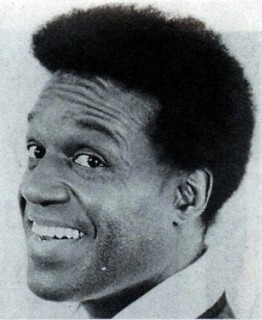 Nipsey Russell was born in Atlanta, Georgia in 1918. Julius Russell — his mother gave him the nickname “Nipsey” — at age 3 was part of a tap dance team called “The Ragamuffins of Rhythm.” He started performing professionally in 1931 at the age of 6, when he was featured as a singing, dancing master of ceremonies for a children’s troupe in Atlanta organized by Eddie Heywood Sr., the father of the jazz pianist. In a 1993 interview with the Los Angeles Times, he recalled being 9 or 10 years old and seeing a black performer named Jack Wiggins who inspired him. “He came out immaculately attired in a well-dressed street suit and he tap-danced,” Mr. Russell recalled. “As he danced, he told little jokes in between. He was so clean in his language and was lacking in any drawl, he just inspired me. I wanted to do that.” In later years Mr. Russell, along with Timmie Rogers and Redd Foxx, would be among the first Black comedians who refused to do dialects or play the Stepin Fetchit-style fool on stage.
Nipsey Russell was born in Atlanta, Georgia in 1918. Julius Russell — his mother gave him the nickname “Nipsey” — at age 3 was part of a tap dance team called “The Ragamuffins of Rhythm.” He started performing professionally in 1931 at the age of 6, when he was featured as a singing, dancing master of ceremonies for a children’s troupe in Atlanta organized by Eddie Heywood Sr., the father of the jazz pianist. In a 1993 interview with the Los Angeles Times, he recalled being 9 or 10 years old and seeing a black performer named Jack Wiggins who inspired him. “He came out immaculately attired in a well-dressed street suit and he tap-danced,” Mr. Russell recalled. “As he danced, he told little jokes in between. He was so clean in his language and was lacking in any drawl, he just inspired me. I wanted to do that.” In later years Mr. Russell, along with Timmie Rogers and Redd Foxx, would be among the first Black comedians who refused to do dialects or play the Stepin Fetchit-style fool on stage.
He got his start in the 1940’s as a carhop at the Atlanta drive-in The Varsity, where he increased the tips he earned by making customers laugh.
After service in the Army as a medic during World War II, he worked in Montreal for two years and made his way to New York City, where, in 1949, he joined “The Show Goes On,” a TV series starring Robert Q. Lewis.
He also caught on as host, resident jester and folk philosopher at Harlem’s Club Baby Grand. Known as “Harlem’s Son of Fun,” he worked more than seven years at the club, a record for a nightclub performer. He also made party albums that were compilations of his stand-up routines.
His multiple talents caught the eye of show business types in New York, and soon he was a frequent guest on “The Tonight Show,” first with host Jack Parr and then with Johnny Carson. In 1961, Russell achieved his first major role as Officer Anderson in “Car 54, Where Are You?”. After being on the show for a year Russell became a mainstay on variety shows, appearing on Laugh-In, The Dean Martin Comedy Hour, the Jackie Gleason Show, and Rowan & Martin’s Laugh-In among many others. In the 1970’s through the 1990’s, he became a popular game show panelist, appearing on To Tell The Truth, Match Game, Match Game PM, Password and Pyramid. He became one of the first Blacks to be a regular on game shows (“To Tell the Truth”) and also one of the first Black game show hosts with NBC’s “Your Number’s Up.”His appearances were distinguished in part by the short, humorous poems he would recite during the broadcast. These lyrics became so closely associated with Russell that Dick Clark, Bill Cullen, Betty White, and others regularly referred to him as “the poet laureate of television”. He also appeared on The Tonight Show, The Dean Martin Celebrity Roasts and many other very popular talk shows of the day. He also had a leading role as the Tin Man in the all Black cast of the film version of The Wiz.
After graduating from high school in Atlanta, he received a bachelor’s degree in literature from the University of Cincinnati, expecting to be a teacher. He served in the Army in Europe as a captain in the World World II, when Black officers were very rare and segregation was official policy.
Nipsey Russell died October 2, 2005 of cancer at Lenox Hill Hospital in New York City. Mr. Russell didn’t have a birth certificate, so his age couldn’t officially be confirmed, said Joseph Rapp, Mr. Russell’s manager for nearly 40 years. He was either 81 or 82 and had lived for many years in New York City.
Mr. Russell’s way with a rhyme grew out of an appearance with longtime “Tonight Show” sidekick Ed McMahon on the TV show “Missing Links” in 1964. Closing the show, McMahon turned to the comedian and co-host and asked whether he had a poem. Suddenly he did, spontaneously, and from then on he was expected to have verse at the ready, whatever the occasion. He had more than 600 poems committed to memory, Rapp said. He composed them late at night.
He offered a confident, sophisticated approach to comedy. His jokes and topical observations were often delivered in the form of aphorisms and rhymes. He had begun reading Shelley, Homer, Keats and Paul Laurence Dunbar when he was 10 and sometimes quoted from Chaucer’s “Canterbury Tales.” Mr. Russell prided himself on the universality of his humor and insisted that he did not want to be labeled a black comic.
The show business Nipsey Russell played against type, his manager and longtime friend said. According to Rapp, he was a lifelong student of classical literature and foreign languages. “He was always reading, always studying and was very, very quiet. He had a photographic memory.”
The Wit And Rhyme Of Nipsey Russell
"It is very simple to do.
I start with the joke line and write backward.""The kids are saying 'Make Love, Not War',
and I'm beginning to think they're right.
For war costs millions of dollars a day,
and love--just a few bucks a night!""The young poeple are very different today;
And there's one sure way to know;
Kids used to ask where they came from;
Now they'll tell you where you can go""Help a man when he is in trouble;
Help him and never complain
For surely that man will remember you!...
When he is in trouble again.""I'm here to set the record straight about sex appeal and a woman's weight.
It's nice to be neat and look petite,
but if you wanna feel some heat,
you've got to have some meat!"
Ain't Ghana Eat
"An African delegate was driving
Along Highway One, between Baltimore
And Washington, D.C., and stopped at a restaurant to dine.
When he entered, they told him
They didn't serve blacks. The delegate,
Flustered with embarrassment, pulled up
All his dignity and said in a loud voice,
"I'm the African from Ghana."
The waitress looked him straight in the eye and said,
"Well you ain't Ghana eat here!"
Still A Nigger
"A guy sitting in bus station notices a scale
That tells your weight and your fortune.
He goes up to the scale, steps on,
And drops a coin into the slot.
A little card comes out. It reads,
"You weigh 150 pounds, you are a Negro,
and you're on your way to Chicago."
The man is surprised that he's been identified
As a Negro, so he tries it again.
And again the card comes out and reads,
"You weigh 150 pounds, you are a Negro,
and you are on your way to Chicago."
The guy is amazed.
He sees an old Indian sitting all wrapped up in a blanket,
So he goes over, borrows the blanket and wraps it around himself
As disguise.
He sticks a feather in his hair,
Goes back to the scale and deposits another coin,
This time it reads, "You still weigh 150 pounds,
You're still a nigger, and by fucking around, you've missed your bus to Chicago."
Filmography
- The Wiz (1978)
- Nemo (also known as Dream One) (1984)
- Wildcats (1985)
- Posse (1993)
- Car 54 Where Are You (1994)
Television Appearances
- The Tonight Show (1959)
- The Jack Paar Tonight Show (1961)
- Car 54, Where Are You? (1961-62)
- Talent Scouts (1963)
- The David Suskind Show (1964)
- Missing Links (1964)
- The Les Crane Show (ABC’s Nighlife), (1965)
- Walter Of The Jungle (1967)
- Snap Judgement (1967)
- The Ed Sullivan Show (1957-1967)
- What’s My Line (1968)
- The Red Skelton Hour (1967-1968)
- The Bob Hope Show (1969)
- The Alan King Show (1969)
- Rowan & Martin’s Laugh-In (1969)
- The Jackie Gleason Show (1969)
- The Hollywood Palace (1969)
- The Jackie Gleason Show (1969)
- Personality (1969)
- The Joey Bishop Show (1969)
- The Match Game (1969)
- The Merv Griffin Show (1968-1969)
- The Choice Is Yours (1970)
- Barefoot In The Park (1970-71)
- The David Frost Show (1971-1972)
- The Mouse Factory (1972-1973)
- The Dean Martin Show (1972-73)
- The Tonight Show Starring Johnny Carson (1963-1974)
- The Dean Martin Comedy World (1974)
- Dean Martin’s Celebrity Roast (1974)
- Dean Martin Comedy Hour (1974)
- Masquerade Party (1974-75)
- Blankety Blank (1975)
- Celebrity Bowling (1975)
- Match Game PM (1975)
- Rhyme and Reason (1975)
- Donny And Marie (1976)
- The Cross-Wits (1976)
- Captain Kangaroo (1977)
- Police Woman (1977)
- To Tell The Truth (1971-1978)
- Hallmark Hall of Fame (1978)
- Flying High (1979)
- Sweepstakes (1979)
- Kids Are People Too (1979)
- All-Star Salute To Pearl Bailey (1979)
- Password Plus (1979-1980)
- Chain Reaction (1980)
- Uptown: A Tribute To The Apollo Theatre (1980)
- The Love Boat (1980)
- Family feud (1983)
- Match Game / Hollywood Squares Hour (1984)
- Celebrity Hot Potato (1984)
- You’re Number’s Up (1985)
- Jackpot (1985)
- Celebrity Double Talk (1986)
- Nipsey Russell’s Juvenile Jury (1986)
- 227 (1987)
- The New $25,000 Pyramid (1973-1988)
- Viva Variety (1997)
- The Chris Rock Show (1997)
- Spin City (1999)
- 100 Centre Street (2001)
- Hollywood Squares (2003)
Discography
- The Funky Side Of Nipsey
- Confucius Told Me
- Guzzling And Giggling Party
- Comedy Sampler
- Harlem’s Son Of Fun
- The Lions Tale (Or How To Make The Party Roar)
- The Birds And The Bees And All That Jazz
For More That’s Some Funny Shit check out Parts 1, 3-5:
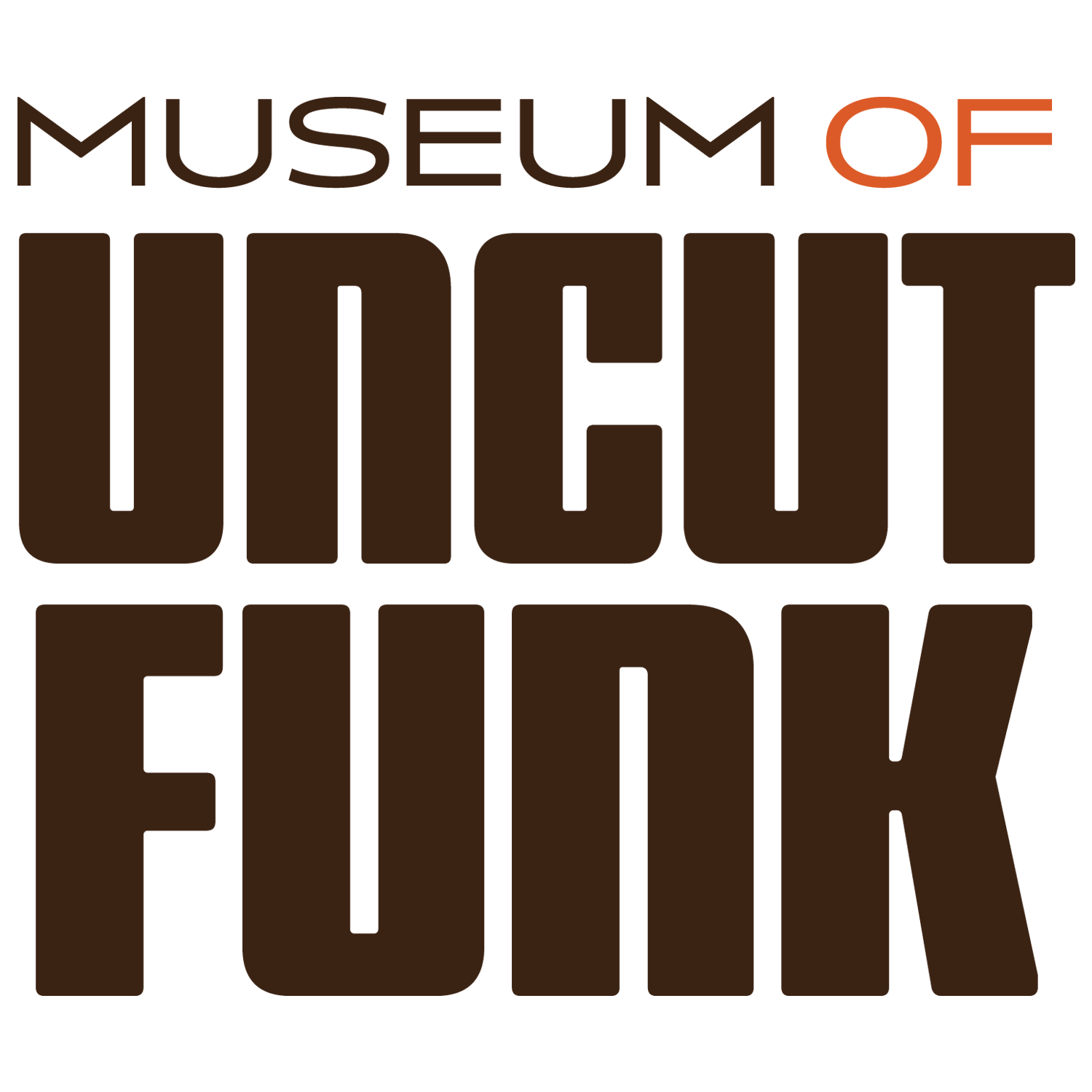
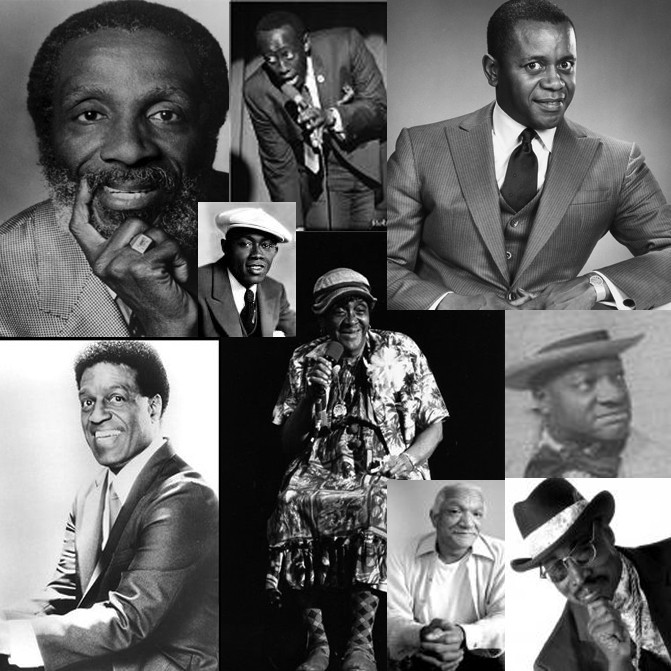
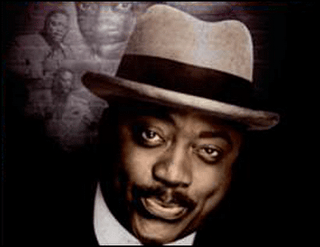

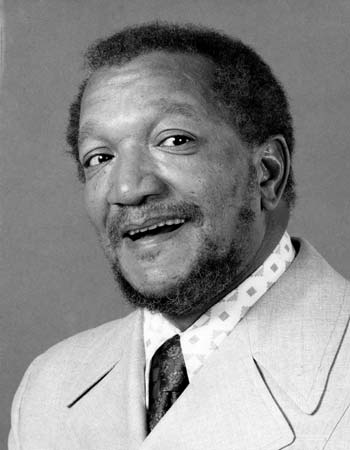

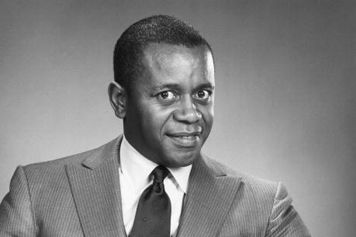


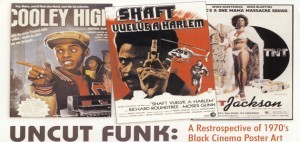
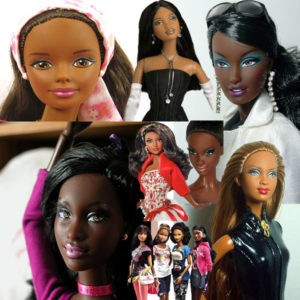
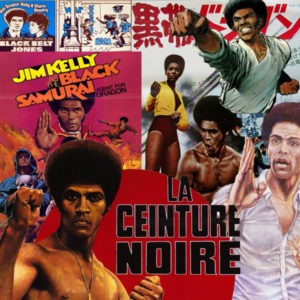
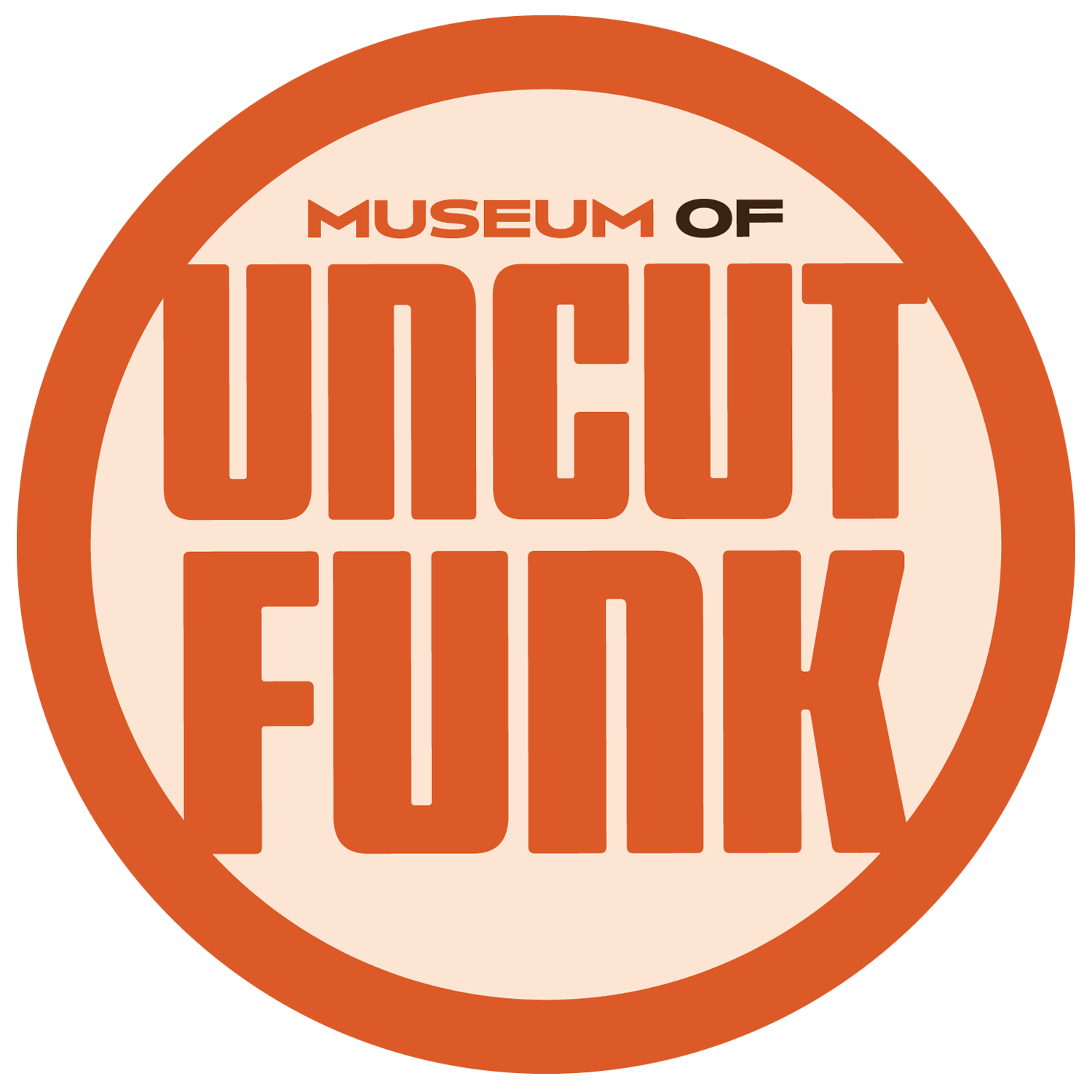
1 Comment
Thanks for sharing.